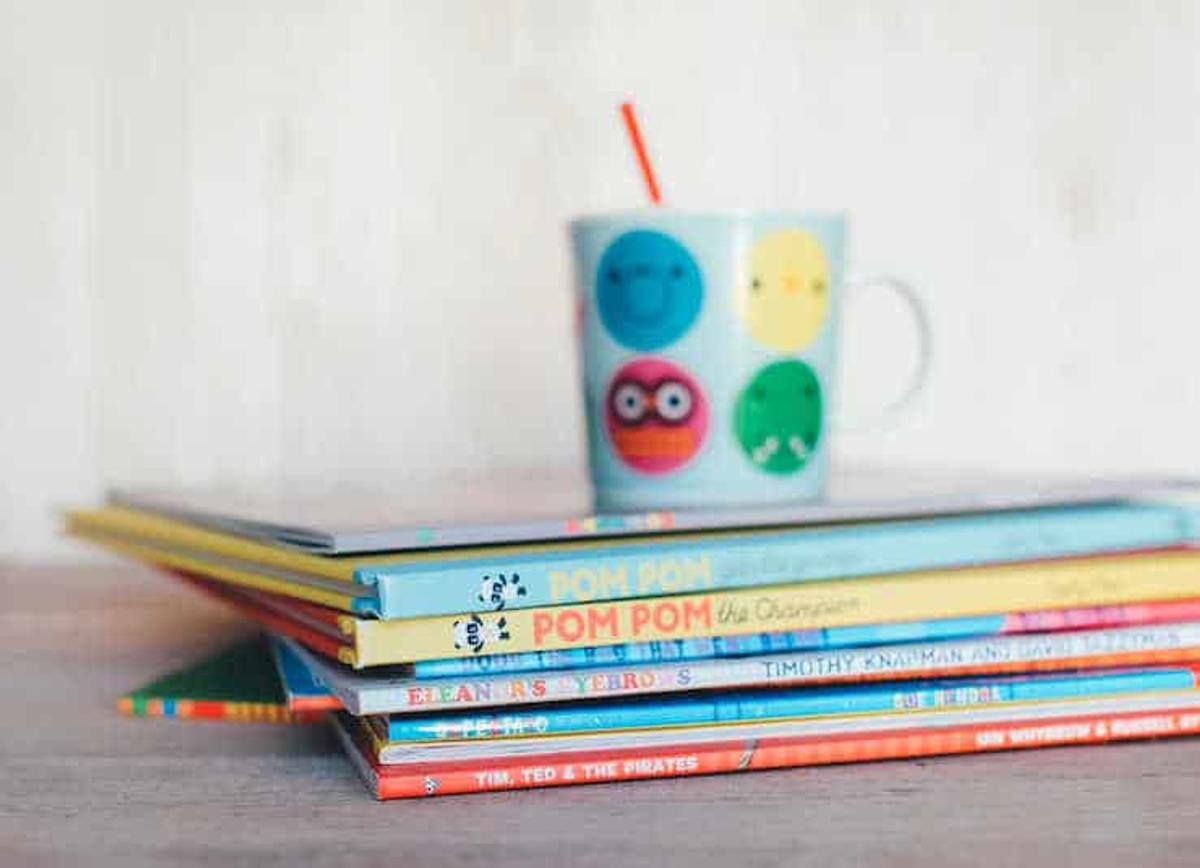Diverse Learning

Newman Selective Gifted Education at Our Lady of Fatima
Below are key points that were discussed at the Newman Parent Meeting that was held at the school last Wednesday.
- Newman is a school-wide pedagogical approach that everyone is part of.
- All students are 'at a Newman school and being provided appropriately for, according to their needs.’
- All teachers use ‘Newman’ pedagogy - which is just good practice, and part of our core work.
- All students benefit from differentiated practices - being identified and supported according to their needs.
- All teachers are aware of the gifted cluster groupings within their classes and ensure the instruction offers appropriate challenges according to identified needs.
- A number of Newman classes may have clusters of gifted students, according to their identified abilities. These clusters are flexible, will vary across KLAs, and may even be re-grouped for particular aspects of learning within the classroom.
- OLF Newman Classes for Semester One - English, Mathematics, STEM, Philosophy, Inquiry Learning, Night of the Notables and Visual Art.
Newman English
Stage 2 & 3 Newman English students have been challenged to enter the ‘AB Paterson Bush Poetry Award’. This is an open poetry award that challenges school-aged poets to capture the beauty, mystique and characteristics of the Australian Bush in a new work of 50 lines or less. This competition provides students with the opportunity to become published authors and showcase their incredible creativity. Please have a read of the drafts from some of our budding poets -
Tough Bush
By Ethan Yr 6
The clouds roll in from unknown land
The land of which snow is sand
The mohawked cockatoos screech
And the koalas climb where you cannot reach
For this land remains untouched
By the creatures and the trees named the Bottlebrush
The land that’s touched by winter’s grip
Snow falls on the ground where you might just trip
The ice, the snow, the plants that grow
Will live here long and people know
You don’t touch this place
You keep it clean and give it space
This is is a place with many names
It is rough and tough and it will never change
Raising a Resilient Child - Free Sign up to Series
Do you ever worry if your child has enough resilience to face the challenges and recover from setbacks that can be a part of everyday life? Master the Parenting Framework that Empowers your Child to bounce back from disappointment and difficult Moments!
Click on the picture below to register for the FREE for the Raising a Resilient Child series:
Mind Quest 2024
On Saturday and Sunday 6th and 7th April the NSW Talent Enrichment Weekend ‘Mindquest’ will be held for primary students from Years 1-6 at St George Girls High School.
This fast-paced, academic program offers 35 exciting courses for High Potential and Gifted Students from years 1-6. It is designed to enrich and extend children’s learning through a broad range of experiences that are one or two years beyond students’ year level and the scope of the general curriculum. These highly successful, fun-filled weekends offer students the opportunity to meet other students of similar interests and abilities.
If you would like to register your child for this program please access the link below:
Closing date for applications is Friday 15th March 2024.
10 Reasons a Daily Routine Is Important for Your Child (And How To Create One)
All families need some type of routine to establish normalcy, a way to get things done and a sense of security.
Children often fear the unknown – whether it’s the broccoli on their plate – or a big life change like moving to a different house, gaining a new sibling or starting school. While change is a learning opportunity, it can also be stressful for children. A normal routine brings comfort and consistency to a child’s life.
Daily routines might include:
- Getting ready in the morning
- Bath times, mealtimes and bedtimes
- Homework and after school activities
- Housework, cooking and cleaning schedules
- Playtime, family time and outdoor play
When you include meaningful and important elements into your family life, you’re letting your child know what’s important. While daily routines look different across neighbourhoods, Australia and the entire globe, the most important aspect is creating a routine that works for you and your family.
Here are 10 reasons a daily routine is important for your child:
1. Helps your child get on a schedule
Consistent routine will help your child and their “body clocks” with many day-to-day basics such as:
- Ability to take sleep well at night
- Ability to eat healthy, full meals
- Regular bowel movements
- Healthy play and outdoor time
- Homework without heartache
- Calm, relaxed behaviour at “down times” during the day
For example, because your child and their body know it’s time to sleep, they are more easily able to wind down and rest.
2. Bonds the family together
When a child knows what to expect and notices regular family activities, they begin to understand what’s important. This strengthens shared values, beliefs and interests.
The child, for example, might notice that eating breakfast together on Saturday mornings is important. They can see that family time together is special. Even if your child is young, they will pick up on these traditions. The family bonds together by doing regular, important things together.
3. Establishes expectations
Rather than having a power struggle about getting ready for school, homework, picking up toys, taking a bath, a child becomes accustomed to knowing when ‘homework time” and “bath time” are.
Children begin to expect and complete activities without issue. As the parent, you become a partner in that routine, rather than the person who is telling the child to “do this” and “not do this.”
4. Creates a calmer household
Because the child, and other family members, know what to expect, stress and anxiety are reduced.
The child will know what comes next. They will feel valued because they are included in the plans and don’t feel as if they’re being forced to do something.
5. Gives your child confidence and independence
With a routine, a child will learn over time when it’s time to brush their teeth or put on their pyjamas. They will take pride in knowing what they are supposed to do – and doing it by themselves.
Rather than always being told what needs to happen, your child will feel confident to go ahead and be in charge of themselves. When children feel empowered and independent, they are less likely to rebel or retaliate.
6. Establishes healthy, constructive habits
From brushing teeth regularly to completing homework every afternoon, routines help establish constructive habits. Children who practice these skills will be able to better manage their time. As they age, they’ll have more self-discipline in terms of healthy grooming and eating habits, along with studying and cleaning their rooms.
7. Helps you (the parent) remember important things
Whether it’s ensuring your child takes their medicine every day or remembering to pay the bills every month, a routine helps you stay on track. In the midst of busy family life, you’ll be able to keep track of the important details – allowing for a more stress-free household and quality time together as a family.
8. Offers your child an opportunity to get excited about what’s ahead
If your child knows what’s on the schedule, they anticipate and look forward to future events – such as going to the park on Friday afternoons or spending time with Dad on Sunday mornings.
When these activities are established, your child feels like a loved part of the family and the world.
9. Provides opportunity for special “daily rituals”
When you build something into your day, like snuggling and reading to your child before bed, you instill special moments or “daily rituals.” These dedicated times create increased bonding and connection with your child every day. Rather than just moving from one activity to the next, you have quality, relaxing time built into each day.
10. Offers stability during times of change or stress
Changes and stresses impact a child’s life and sense of security, such as a divorce, change in school or addition of a new sibling.
When the family has an established routine, normalcy is present in the child’s life, no matter what is going on. A child finds calmness, stability and love through elements of routine, such as family dinners or regular Friday trips to the playground.
The Importance of Flexibility
While establishing and maintaining routine has a wealth of benefits, it’s vital to also remain flexible. Spontaneity and creativity are important factors in a child’s life. For example, the breakfast dishes can wait if there is an exciting animal in the backyard or a special Saturday fair happening nearby.
Remember to stay sensitive and adaptable to the needs of each child (and adult). When a schedule becomes too regimented or strict, the benefits will be reduced, and children may feel controlled by it rather than freed by it (which is the ultimate goal).
How to Set a Daily Routine for Your Child
Routines can begin from the first day of life. If you haven’t started a routine from the early days, don’t worry. They can be established and begun at any point. The earlier you establish a routine, the better.
Step 1: Establish the important times such as getting ready for school, homework, meal times, snack times and bedtime. If you currently have no schedule, gradually move to a consistent routine. For example, you may wish to set up a regular morning routine and bedtime first. Then, you can add in regular homework, mealtimes and bath times.
Step 2: Practice patience. Setting a schedule may be hard for your child at first, but they will become accustomed to it. Try not to become impatient or frustrated if the routine takes time to become “regular” for your child.
Step 3: Add “helpful” elements to each part of the routine.
For instance, you may wish to add in a regular 10-minute reading and snuggling time with your child before bed. This helps them wind down and feel ready to sleep. When establishing routines many children benefit from having a visual schedule to refer to and a reward chart. (Reward charts will be discussed in a couple of weeks).
Step 4: Work toward consistency and make room for flexibility. In order for a routine to stick, you’ll need to make sure you keep it as regular as possible.
However, stay open to flexibility, especially for holidays and special events, so your child’s mood doesn’t become solely dependent on eating at a specific time, for example.
Step 5: Establish special times with your child.
Whether it’s a regular trip to grandma’s house or walking the dog together, create expectations and routine of family time.
Step 6: Adjust as needed.
As the months go on, you’ll start to see what’s working and not working for the family. A routine is meant to help the family, not hinder it. Be sure your routine is healthy and positive for your child and other family members.
References
www.melbournechildpsychology.com.au/blog/the-importance-of-routine-in-childhood/
Ms Janelle Schembri | Diverse Learning Coordinator















